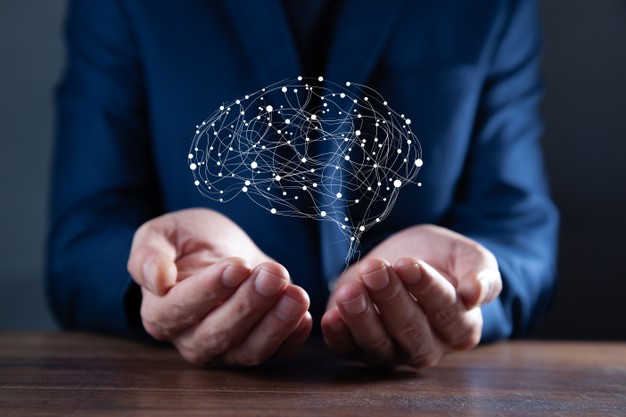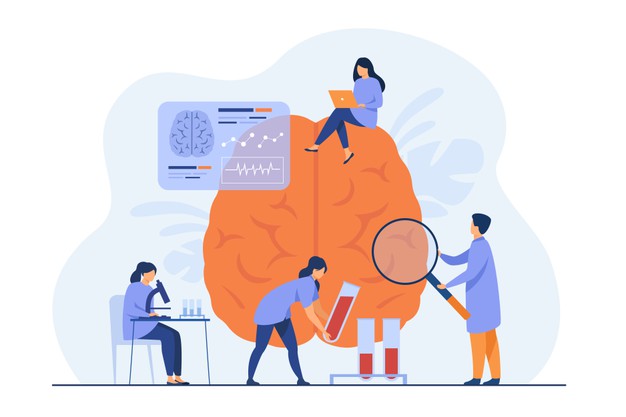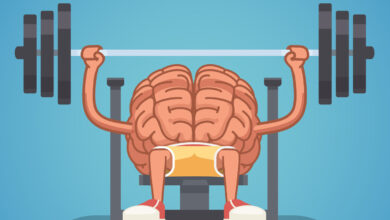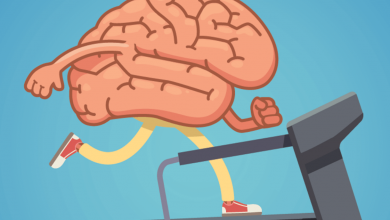The Role of Neuroscience in Psychology

The 21st century is special for many reasons. People of today do not understand how lucky they are. Advanced technology made our lives more comfortable. However, that doesn’t mean everything around it is perfect. It is not a secret that the lifestyle we all lead is turbulent. Each day, we have to deal with a big number of problems and stressful situations. Of course, some people know how to handle stress. However, if you are not one of them, we need to say you should not worry too much. You and thousands of other people have the same problem that deserves proper assistance.
Fortunately, psychology is improving almost every day. The experts in this field manage to develop different treatments that can help people solve the problem they have. That is the reason why you may hear that neuroscience has a key role in psychology. Neuroscience is a field that exists for a couple of decades. However, for a long time, it didn’t have anything in common with psychology. That is the reason why people do not know a lot about it.
The good news is that you came to the right place. We will talk about the role of neuroscience in psychology and everything you should know about it. Gathering information from different sources is always going to be a good choice. Because of that, we recommend you check BetterHelp after reading the article. There you will manage to find additional information about neuroscience psychology.
Before Everything – What Is Neuroscience?

Believe it or not, we can use only two words to explain what neuroscience is. Many experts like to say it is brain science. However, the terminology often does not say the full story. Neuroscience is a science field that studies and researches the entire nervous system. It covers all the biological and chemical processes in our organism.
After years of research, we still haven’t managed to find out everything about our brains. However, in the last couple of years, things started to change a bit quicker. Thanks to computer simulations as well as modern imaging tools, we can now get insight in to complete anatomy of the brain. That allows scientists to do in-depth research of all psychological, neurological, and physical aspects of our brain. They can now easily research and investigate the impaired neural pathways on the human mind and body.
Subcategories of Neuroscience

The article would be much longer if we highlight all the subcategories of neuroscience. More precisely, there are more than 20 of them, and they all focus on different things. Some of them are molecular neuroscience, behavioral neuroscience, cognitive neuroscience, etc. Yet, the one that will surely grab your attention is neuropsychology.
That subfield of neuroscience research both, psychology and neuroscience. The main focus of the experts working in this field is the connection between neuropsychological functioning and the brain. In most cases, they will concentrate on the behavioral changes of a person after different types of neurological injuries and other issues.
Ways How Neuroscience Supports Psychology
Just like we said, neuroscience focuses only on the physical properties of our body. On the other hand, psychology only focuses on psychological ones. At first glance, these two science fields do not have anything in common. Yet, that doesn’t mean they can’t function together. They can complement each other in different ways. However, the way how they function depends on the health issue that each person has. We will use a couple of samples to give you a clear picture of their mutual functioning.
Alzheimer

The first Alzheimer’s disease characteristic is cognitive deterioration. Because of that, the disease often leads to the quality reduction of the intellectual abilities of an individual. Because of that problem, the person starts changing the behavior and the overall personality. Different neuroscience methods were primarily applied to animals. Thanks to those researches, the scientists found out an amazing invention. They realized that memory loss that comes with aging can be stopped by the gene transfer approach.
Experts in this field were commonly using monkeys for the studies. They realized that control neurons that are located in the brain shrink over time. Because of that, they do not produce the necessary chemicals. The lack of production is the reason why people start having a problem with their memory. Because of that, by injecting (and re-injecting) the nerve growth factor, the scientists manage to restore the cell functions and count. That is the reason why they believed the same method could work for Alzheimer’s disease.
Schizophrenia

People that suffer from the impaired repetition of reality have a problem with schizophrenia. OF course, the symptoms of this mental disease are not always the same. In some cases, people deal with hallucinations while others will have a problem with psychosis. Anyway, here comes the moment when neuroscience becomes essential. The experts from that field managed to categorize all the symptoms a bit better. Because of that, they managed to assign all those symptoms to the structure and function of the brain. That allowed them to develop a good treatment strategy.
Clinical Depression

Depression is the word you can hear almost every day on every corner. We already highlighted at the beginning of the article why people deal with that psychological problem. However, the treatments doctors use in today’s world are improving almost daily. The first thing doctors do is scanning the brain. In that way, they want to check if the person has certain brain changes that caused depression. After that, they determine which treatment is going to be good for the patient. The treatment will never be the same for people with abnormal baseline sgACC activation and for those that have a normal baseline activation.
Anxiety

Anxiety and depression usually come together. The way how people can treat anxiety is different. For instance, in some cases, medications will manage to help. However, that is not always the case. Thanks to the combination of psychology and neuroscience, the scientists managed to identify a bit different brain pathway. Because of that, they started to develop the anxiety-reducting drugs that will target that pathway. We hope the experts will manage to gather new information and improve the quality of medicines that anxious people use.



